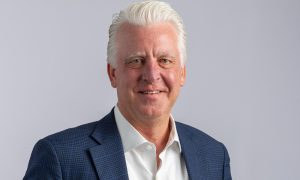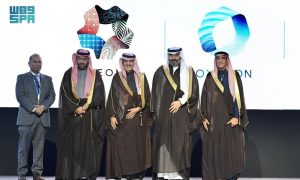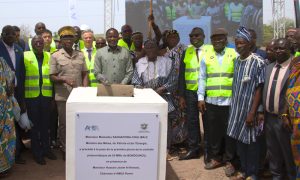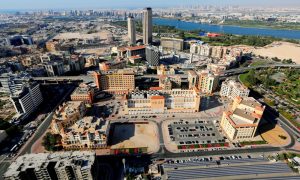New Beginnings
Big Project ME sits down for a chat with Yu Tao, president and CEO of China State Construction Engineering Corporation (Middle East)

RELATED ARTICLES: China to build world’s longest tunnel | CSCECME announces $1bn investment into SKAI’s Viceroy project | SKAI Holdings sells Viceroy Dubai Palm Jumeirah units worth $653mn
When you’re part of the third largest construction company in the world and have racked up a total revenue of $81.3 billion (in 2012), it wouldn’t be unreasonable to assume that you’d have a certain amount of swagger when you approach a new market, no matter how competitive it is.
After all, it’s not like China State Construction Engineering Corporation Ltd. is some sort of brash newcomer in the market. Having been established in 1957, the firm has seen its operations reach 27 countries and regions around the world, while it has conducted business in more than a 100. From 1982 to 2011, the corporation’s accumulated contract value stood at $661 billion, while turnover accomplished stood at $380.5 billion.
As staggering as those figures are, they hold almost no significance with Yu Tao, the president and CEO of China State Construction Engineering Corporation (Middle East), when it comes to his operations in the region.
He tells Big Project ME that as he sees it, CSCEC(ME) needs to convince the market of its own worth, irrespective of what its parent company has done over the years.
“It’s very natural. If they don’t know you, even though you have a very big name around the world, they’ll still have many questions to ask. To manage this situation, what we have done is to deliver,” he explains.
The company first started operations in Dubai in 2003, when it won the contract to build the Palm Jumeirah Garden Home Villas Project. The successful completion of that project underpinned its growth in the UAE and its subsequent expansion into the GCC region. By 2005, the company was formally established in Dubai and by 2008, it had ventured into other Emirates and established branches in Abu Dhabi, Sharjah and Ras Al Khaimah. During this time, the company expanded and became a diversified contractor with its own infrastructure and MEP divisions.
“The Palm Jumeirah villa project was a contract that, I believe, allowed us to concentrate – from the beginning – first on the finish,” Tao explains. “The project itself was big, it was so much bigger than any other advertised. So for the first three years, we focused only on the Palm Jumeirah contract. And after three years, we became the first one, or may the only one, to finish a contract with Nakheel (on time). The client spoke highly of our achievement and the ruler of Dubai, HH Sheikh Mohammed himself, visited our company, our projects and spoke about our achievements. The first sentence he told me was that ‘we’d done a great job’, ” he relates during the interview at his offices in JLT.
“So we eventually had the breakthrough and it was natural for any company coming to a new market to have a learning curve. It’s a matter of how we cut (that learning curve) short and ensure that we don’t run off track. That is very critical. Having a good start is important for any contractor in the world.
“Today, as China State, we’re probably the biggest building contractor in the world, but that doesn’t mean that we take projects easily or that we believe that our reputation is there (established) and we don’t need to spend much time on project management. This won’t work,” Tao asserts.
“I’ve been spending a lot of my time not just pursuing clients to award the contract, but also with my colleagues on the day-to-day operations. I have been chairing operation meetings every month for the last ten years and I know most of the details for each project, so when the client asks me for details, I’m prepared and I know what we’re doing and where we need to improve.”
This approach is set to stand CSCEME in good stead as it steps up its plans for its GCC expansion. All told, the company has been awarded 35 projects (all three divisions included) in the UAE alone. Out of these, 21 have been completed, with 14 on going or kept on hold as per the owner’s request.
The project values that have been awarded since the company’s first assignment exceeded $3.2 billion in a time frame of ten years. The contract value of ongoing projects stands at more than $1.63 billion.
Given the wealth of experience under the belt, Tao feels that the time is ripe for CSCEME to expand its operations into the rest of the Middle East, especially given its initial success in the Qatar and Kuwait markets.
“In the region, we have experience in Kuwait, Qatar and Bahrain – where we’ve done two five-star hotels – and of course in the UAE. In these countries, we’re already established and it’s easier for us as our staff more or less understand the culture, the local practices and the network,” he says.
“However, for Saudi Arabia, it’s a huge new market and many of our Chinese counterparts who have already worked there have told me that it is extremely challenging, so we have to be cautious. We don’t want to be making any unnecessary mistakes. To make it successful, I believe you need a very good partnership. This is something I’m always looking for.
“You also need a reasonable project to start with. I use the word reasonable in the way that, as a foreign company, we can go inside – with our partner – and we can digest it. I don’t want to become a hero from the beginning, coming in and trying to declare ‘I’m coming! We’re number one in the world!’ Certain things won’t be good for us and we’re beginners in the market. Even if we’re number one in the world, in Saudi, we’re beginners, so beginners need some sort of ‘baby feed’ to start with,” he points out.
This ‘softly-softly’ approach is set to be extended to the wider Middle East, as Tao reveals that there are plans afoot to expand the reach of the contractor.
“For the last three years, China State Middle East has been the regional headquarters for regional operations. In general, we’re covering the whole operations in the GCC and also part of the other areas, like Iraq. If possible, we’d also like to target places like Turkey and Yemen, basically the whole region.
“We have other focuses, not only Yemen and Iraq, but generally, our main focus is in the GCC region. The UAE is of course our main priority, and we also have a presence in the Kuwait market. We’re building two major bank buildings there; the first is the Central Bank of Kuwait and the second is the National Bank of Kuwait,” he says.
“Kuwait is one of the main markets for us in the GCC. At the same time, we’re looking for opportunity in Saudi Arabia and Qatar. We believe that these two countries has potential. First of all, the population of Saudi – they have a population of nearly 30 million, which is the biggest in the GCC. We believe that there is certainly demand and also the government is launching a lot of projects – residential, infrastructure, railway, metro. It’s a booming market,” Tao adds.
“But what we’ve observed is that even if it’s a booming market, that doesn’t mean that it’s easy for us to penetrate. You need to be extremely capable to manage the resources and to move in the resources in time for you to deliver the project. It really poses a great challenge to any contractor in the world,” he insists.
The Kuwaiti projects illustrate CSCEME’s range of work, with the contractor working as a steel structure specialist for the National Bank and as a main contractor for the Central Bank. Another project that is illustrative of the firm’s growing clout in the construction industry is the Midfield Terminal complex in Abu Dhabi, where it is also working as the steel structure specialist.
“It’s one of the most complex steel structure buildings in the world,” Tao says. “So far, it’s been good. We’re doing well and we’re two weeks ahead of schedule.”
He adds that the complexity of the building comes down to its size, with a single span reaching 180 metres, while the combined span is close to 300 metres. Another complication is the design of the building, which he terms as “three dimensional and changing all the time,” which creates complications for the fabrication and installation of the steel structure.
CSCECME is also heavily involved in the MEP area of operations, working on both the Abu Dhabi Midfield Terminal project and Dubai International Airport.
As complicated as these projects are, Tao says that he wouldn’t have it any other way, as he believes that succeeding at these massive, high-profile projects is the best way to cement CSCECME’s reputation and standing in the regional construction market.
“At China State, in general, we look for big projects in the building sector. What we classify as big projects – we’re talking about terminal buildings for airports, major stadiums, mega-sized hospitals, super-tall high-rises or a large amount of villa or residential developments, that’s the work we’re talking about in the building sector.”
“In the infrastructure sector, what we’re looking for is railways, metros, highways, those types of projects,” he asserts.
And it is these large-scale projects that Tao has in mind as he discusses his outlook for the coming year and the build up to two of the biggest global events in the Middle East’s history, the Expo 2020 in Dubai and the 2022 FIFA World Cup in Qatar.
“My feeling is that the good years are coming. The reason I say so is because the confidence is coming back. With the World Cup and the Expo coming, the infrastructure must be built up to support these events,” he says, adding that tourism numbers will continue to climb, which means that the tourism industry must be geared up and prepared for them.
“How are we going to line up to benefit from the opportunities? I think first of all, we need to set higher standards for ourselves, to deliver top class projects for clients. In the region, you’ll find that the fiercest competition is the so called ‘low-entry’ business. If there’s some ordinary job, you’ll find 40 to 50 competitors. It’s only these niche projects which will require very skilful contractors who have the best technical staff and the most experienced project managers, who have the ability to control or put the resources together.”
“In those niche projects, we, as world class contractors, find something in our favour. We find that our service has become value added to the client,” he concludes emphatically.




















